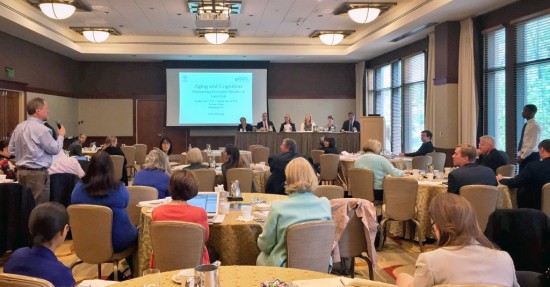Claire Jones was enjoying a comfortable retirement after years working as a bookkeeper and keeping a close eye on her own personal savings. But just a few months after “winning the lottery,” she had lost hundreds of thousands of dollars.
It was a scam that, in her younger years, Ms. Jones would have sniffed out immediately. But as she aged, changes to her fluid intelligence and social and emotional processing turned her into a perfect target for scam artists.
Stories of financial fraud with elder victims are common, though many cases are preventable. Dr. Jason Karlawish, co-director of the Penn Memory Center, outlined a plan he calls “whealthcare” in his latest Forbes column.
“Whealthcare isn’t simply alliterative word play,” he wrote. “It reveals itself when several empirical observations are woven together beginning with the changes that either aging or diseases, or both, that cause changes in older adults’ financial capacity, a term that describes our abilities to manage our money and other assets to meet our needs and in a manner that is consistent with our values and interests.”
The medical community has treatments for heart disease, but just as important is are efforts done by the individual (regular exercise) and society (public smoking bans) level. In a similar manner, whealthcare calls for a public health model to preventing cognitive decline and fraud.
“Whealthcare begins with the recognition that banks and financial service industries are on the front lines of screening for cognitive impairments and therefore promoting financial security,” Karlawish wrote. “Surveillance of financial transactions is a means to identify changes in cognition that might be the earliest signals of a disease or aging. Prediction algorithms developed through machine learning could help to identify older adults at the highest risk.”
In May, the World Economic Forum Global Agenda Council on Ageing and Penn’s Health Brain Research Center jointly hosted a whealthcare-focused symposium titled “Aging and Cognition: Maintaining Economic Security in Later Life.” Presentations give by experts from the financial service, banking, regulatory and advocacy industries are all available at www.pennadc.org.
“Whealthcare” for Banking and Insurance
Dr. Jason Karlawish, Professor of Medicine, Perelman School of Medicine & Co-Director, Penn Memory Center, University of Pennsylvania
